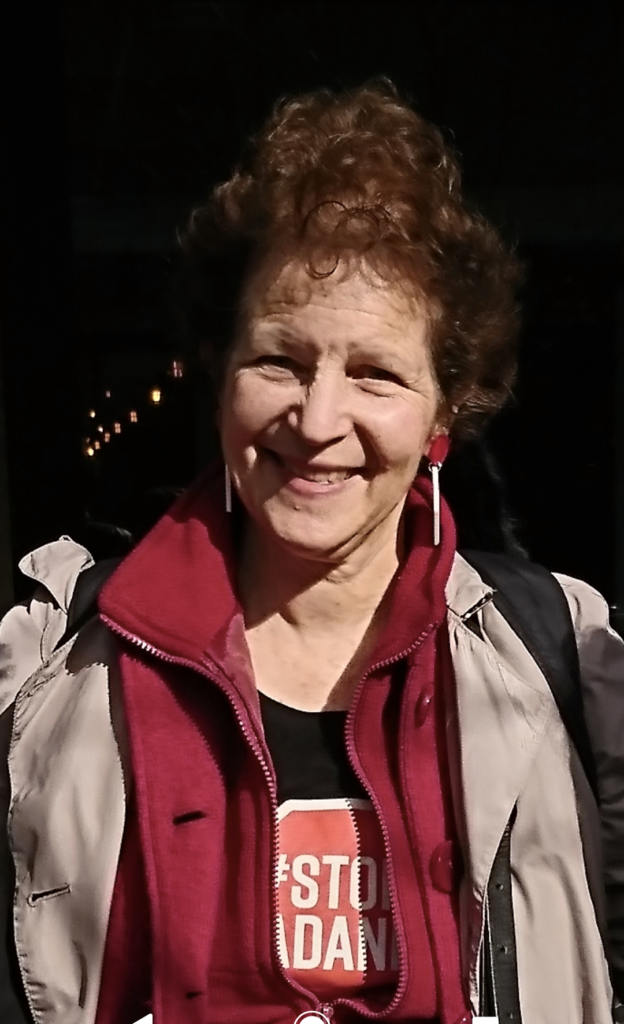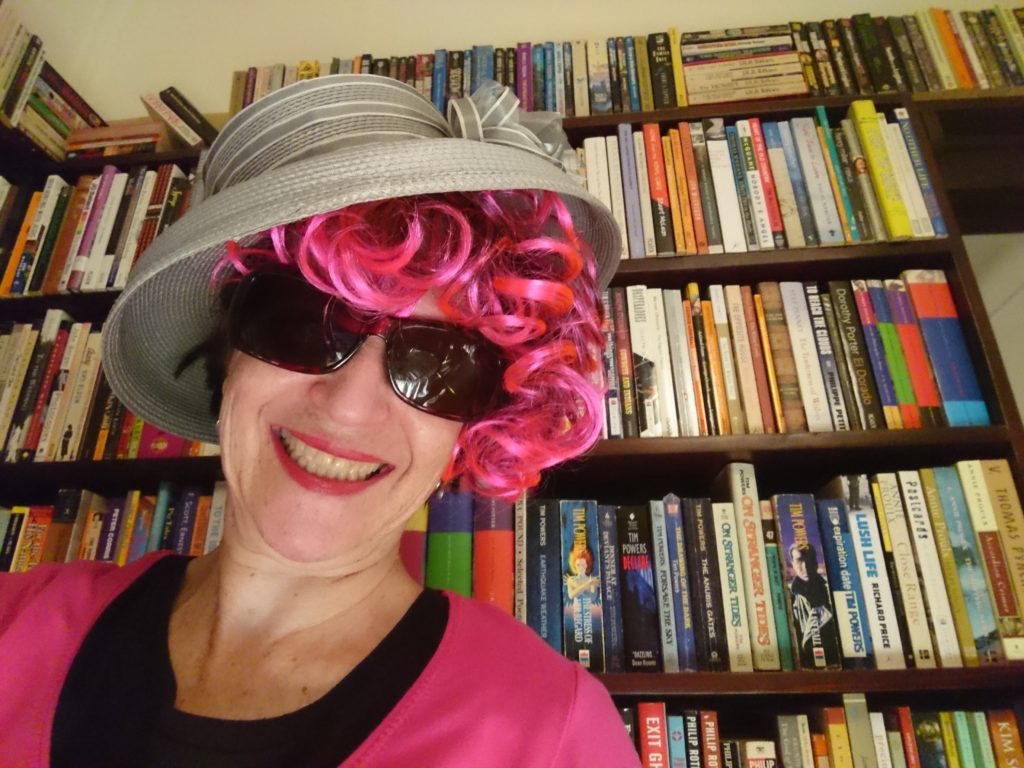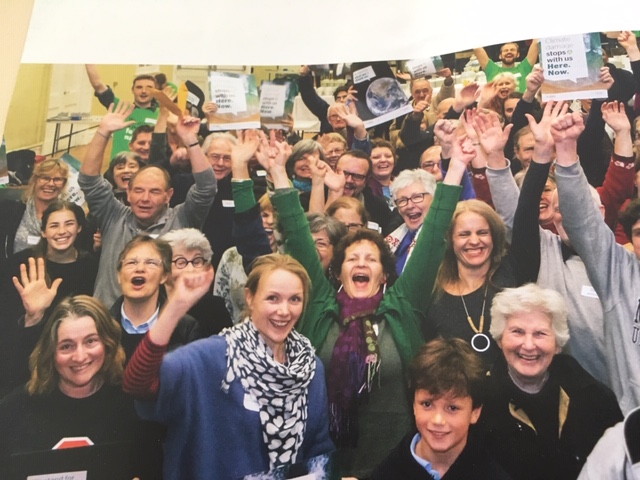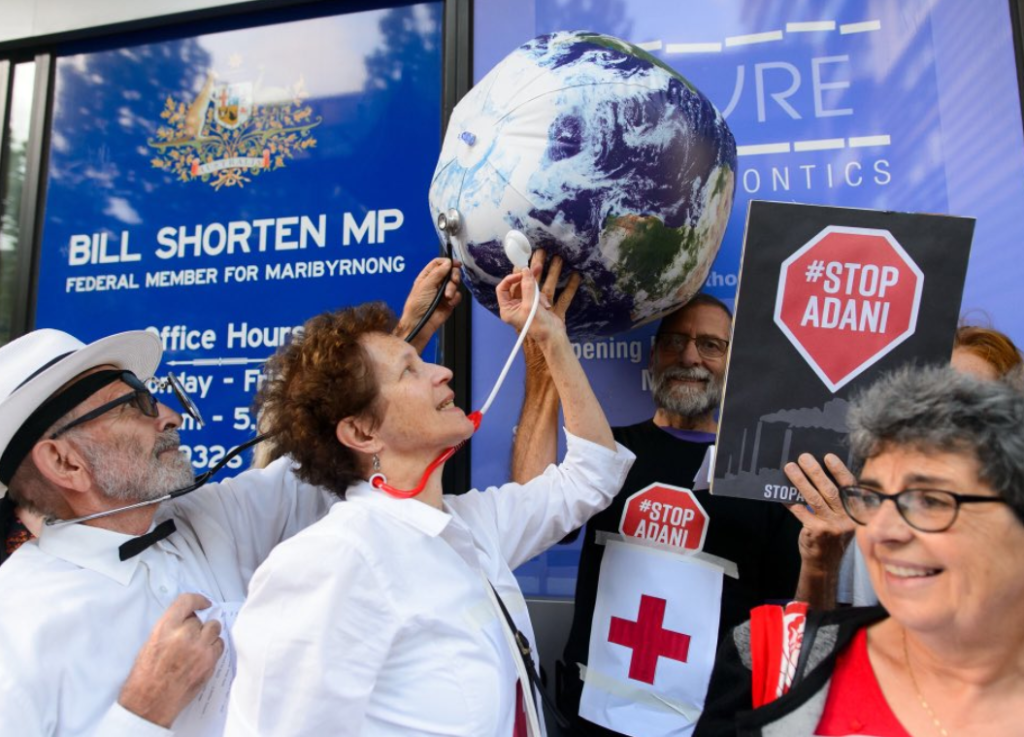
Our view of ourselves is influenced by many factors, not the least of which is our parents’ expectations of how we should behave to gain their approval. Once we leave our childhood home – for example to attend university in another state, as was the case for Angela, these layers of conditioning peel away. She swung into the counterculture with gusto, stripping off her conservative Perth upbringing. She even managed to fail a semester of her Library course – a badge of honour for a course with a 100% pass rate.
It is clear Angela has all the accoutrements of refinement although she wears these modestly. She is well read, speaks fluent French and is an accomplished piano player but there is an earthiness to her which entertains and surprises. She can suddenly burst into sharply accurate mime with vaudevillian physicality, and swear with gutsy passion – I have never heard a more beautifully enunciated F word! There were more surprises to come, as I discovered over the course of the interview.

Q: Skipping forward to today, how did you handle the transition to retirement?
In the lead-up to retiring fully, I was lucky enough to be able to gradually scale down my working hours to two days a week. I joined the U3A and on my non-working days, I took weekly French classes, and played cello in a classical music ensemble. Also, the year before I retired, I began volunteering 4 hours a week with a not-for-profit environmental organization. I eventually retired in December 2015 and those activities helped make the transition easier.
Q: So I imagine being fully retired gave you more time to enjoy your leisure activities. Was that the case?
Well, not entirely. When I first retired I did too much, saying “yes” to everything. For example, the U3A Ensemble I was in gave concerts at Deakin Edge each year. I was very stressed in the lead-up to these concerts “doing the things I was meant to be enjoying”. I loved the music but my skill levels weren’t up to the task. In the final year, when I was due to re-enroll in the ensemble I realized I had been wanting to leave for a long time but had felt I would be letting everyone down. At the same time, I was having cello lessons and planned to sit a cello exam. I realized I was doing that for my mother – proving to her that I could play the cello. Nonetheless, I did pass Grade 3 and got a B+, proving to myself that I could succeed if I was prepared to spend hours practicing every week in a room by myself.
Q: So do you think that your strong sense of obligation & loyalty were holding you back – that they were stopping you having fun?
Yes, exactly. The same sense of obligation applied to the French classes. I was doing my homework at midnight the night before each class. I seemed to be just running late all the time, in everything I did. In the end, I realized that the classes weren’t giving me what I really wanted which was to just speak French. Interestingly, about 12 months after I left the class, another former French student contacted me, suggesting we meet and just speak French about “n’importe quoi” for an hour each week. We did that for a number of years until I realized, not for the first time, that I needed to get my frenetic life back into balance. I had far too many regular, weekly commitments (enjoyable, as they were) and was beginning to feel overwhelmed.
But it was really in June 2017 that a major health hurdle forced me to reassess my priorities.
Q: So tell me a bit more about that
I injured my back and couldn’t sit down pain-free for three months. This meant that an overseas a trip we had planned had to be cancelled. I realized at the time, even before I hurt my back, that going overseas was something I was beginning to feel ambivalent about. The reason for this was that in May of that year, I had become involved in the Stop Adani movement. It was 2017, two years out from the Federal election, and we wanted to target Bill Shorten (my local MP) because, at the time, it looked as if he might be our next Prime Minister. We were hoping he might stop the Adani Carmichael mine if he won office. Being part of this #StopAdani group was really important to me and I later realized I had found my tribe. I became passionate about acting on climate change – I had always been concerned about the environment* but had never been actively involved before.
* In Angela’s household, no opened envelope went unused, there was a bucket in the shower during the drought years, and for washing dishes there was ye olde Velvet soap in a wire container.

Q: So would you say one of the positives of retirement is that you have been able to get in touch with your intuition, what you genuinely want to do, your passion ?
Yes, and the epiphany happened partly because of my back. As I said before, I was unable to sit down pain-free for three months, but as well as that, I couldn’t drive for four months. Being part of the #StopAdani group was one of the few things I was still able to do – it kept me focused. I would have to say that at that point, I realized I’d found not only my tribe but my goal in life. I became an activist. When you first retire you don’t always know what you want to do… you’ve sort of got to suck it and see. It can take you a while to find what you really want. It was a good group of people to be in. I found it was important and satisfying and I could use all my skills. I chose to do it… the group was very non-judgmental. I was probably the most judgmental of the group! It was not hierarchical. It was a very flat organization where I felt accepted. There was of course a command and control centre but people were aware of that. Some were more active than others but everyone had a role to play depending on their skills.
Q: Speaking of skills, in your voluntary work with Environment Victoria do you feel more valued as a volunteer rather than a paid worker?
Absolutely. I feel privileged to be allowed to work there. Another friend of mine also volunteers there and feels the same way. I feel much more valued than when I was working professionally as a librarian. The staff at EV really appreciate the contribution made by their volunteers. Being a volunteer is very special – you are making a contribution to society with no expectation of monetary gain (this makes you feel good) and, as a volunteer, you get to choose which organizations you want to work with. If the organization’s values don’t align with yours, you can move on, and keep hunting for your tribe

of the planet outside Bill Shorten’s office in Moonee Ponds.
It is clear that Angela has not just evolved from her conservative beginnings as a painfully shy young woman and later a librarian working in the background, but has undergone a radical metamorphosis. She has stepped into the very public arena of activism. See her stopping traffic at Moonee Ponds Junction or leading a rally, microphone in hand, one thing you can be sure of: the burning bright light of her passion is an inspiration to all, and a lesson in how not to have a quiet retirement.